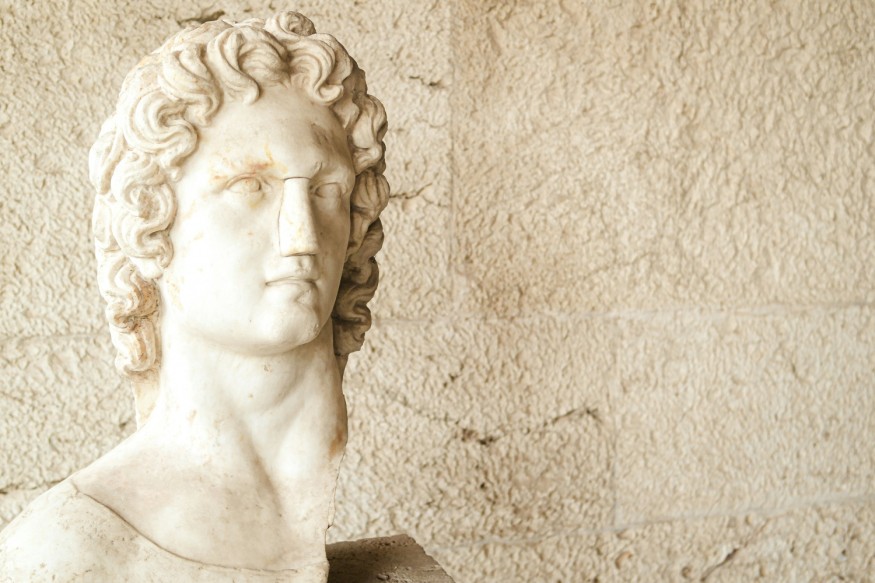Alexander the Great’s 2,300-Year-Old Bath Discovered by Archaeologists, Offering Insights Into Ancient Macedonian Life

In an extraordinary archaeological discovery, a team of archaeologists has found one of the most important features of ancient Macedonian royalty: a bathroom used by Alexander the Great. Lying at the ceremonial center of ancient Macedonia, the vast complex is known as the Palace of Aigai. For decades, it has stood as a symbol of the golden age of antiquity, yet new finds reveal new details about the personal life and rituals of one of history's most legendary figures.
A Glimpse into Royal Life
The Aigai palace, 15,000 square meters strong, was too bright for the grandeur of the Parthenon. Its walls held secrets of the time: the assassination of King Philip II and the passing of the throne to his 20-year-old son, Alexander the Great. Among the treasures excavated are many temples, sanctuaries, theaters, and tombs.
Intimate Revelations At the center of the discovery is the palaestra and bathroom that many believe was used by a teen, Alexander, and his close companion, Hephaestion, whom he bathed and played with. Said to be the childhood friend of the great conqueror and later a possible lover and even an officer in his army, Hephaestion was an essential figure in his life and career. The communal aspect of these bathing rituals gives a sense of the intimate bonds between the teenage Alexander and his comrades, steeped in the athletic culture of their society and, one can almost suspect, laced with homoeroticism.
Also Read : Ancient Egyptian Heritage Sites Exclusive Venue for Tech Billionaire's Extravagant Wedding
A Journey Through Time
In fact, Alexander's bathing area represents the finale of a detailed archaeological project that took over 16 years and cost 20 million euros. Restoration has revived 1,400 m2 of mosaics in the banqueting hall, marble floors, and palace colonnades. A trove of precious artifacts was discovered during the excavations, increasing our knowledge about ancient Macedonian culture.
A Rediscovered Legacy
For presenter Bettany Hughes, this is a poignant moment in history- the opening up of Aigai's secrets. Access to the tomb of Alexander's sister, Thessaloniki, finds Hughes within the sepulchral beauty and reigning legacy of the Macedonian dynasty. These new extraordinary discoveries in Bettany Hughes' Treasures of the World, to be broadcast on May 11, invite viewers into the world of ancient royalty and the enigmatic figure of Alexander the Great. In short, the discovery of Alexander's bathroom gives an intriguing glimpse into the private life of one of the most famous people in history. It proves that ancient history is never boring.
Archaeologists, with their discovery of Alexander the Great's bathroom within the holiest of halls in Aigai palace, have done more than lay bare an immediate connection to the past - they have brought us face to face with the secretive and intricate workings of ancient Macedonians, their kings, and queens. This finding, initially the one that showed the image not only as hard-working but also as sportive and maybe even spectacular, opens a view into the personal world of one of the best historical heroes. While we are mulling over the implications of these results, we are also being drawn to the eternal charm of history and the everlasting desire to unravel the mysteries of the past, thus prompting us to continue our explorations of the past to understand the human experience better.
From Digital Models to 3D-Printed Homes: Jaspreet Kaur Lall Explains How the Innovation Changes the Construction Industry

Future Belongs to Green Construction: Sampath Kumar Paspunoori Explains One of the Key Trends in the Construction Industry

Kamala Harris' Campaign Ad Uses Iconic Visuals from Carrie Mae Weems to Connect with Voters

Historic Ancient Roman Ruins in Baalbek Remain Strong After Israeli Air Strikes; Locals Seek Cultural Protection

4 Ways to Honor Departed Loved Ones in Your Home Design














